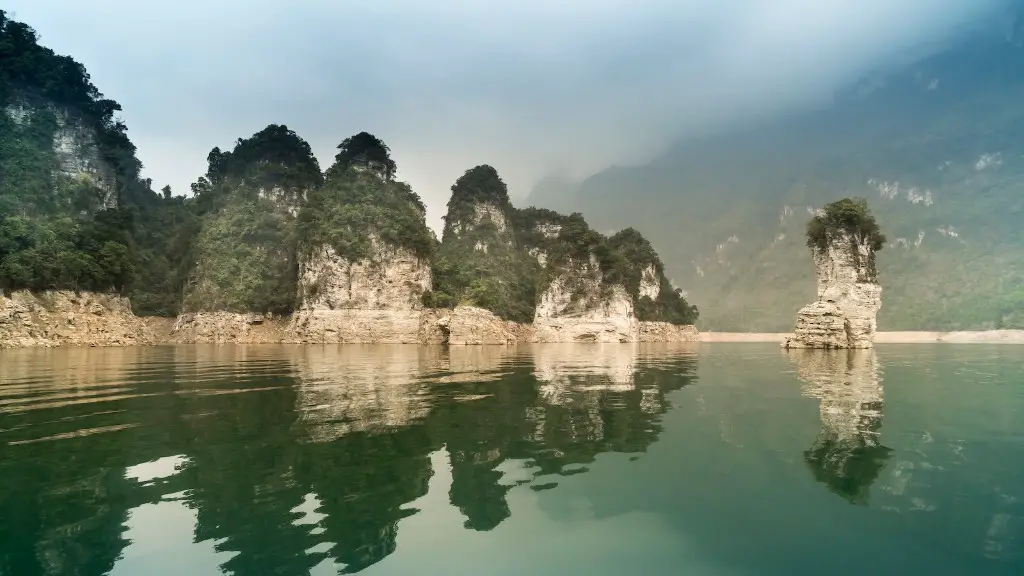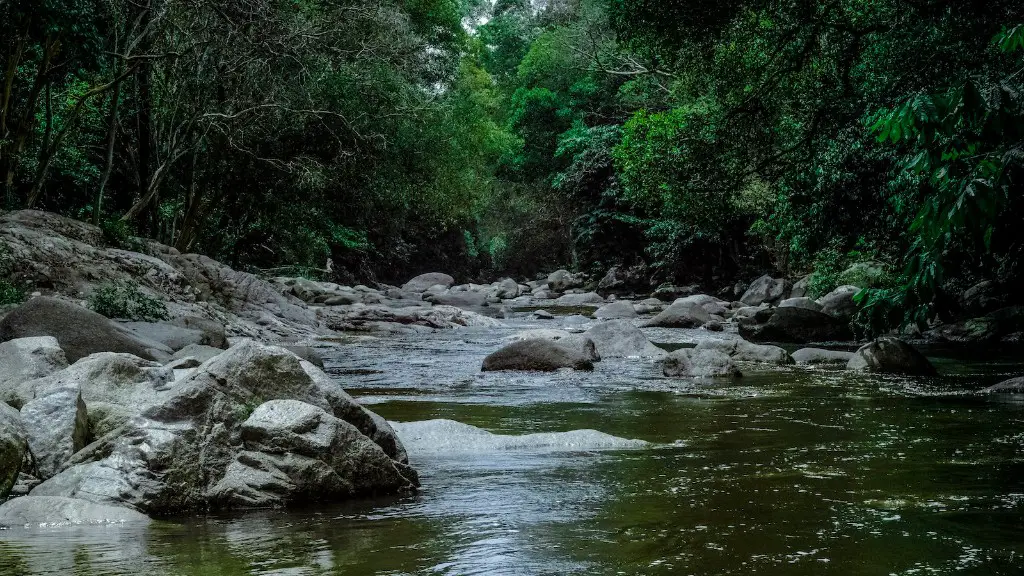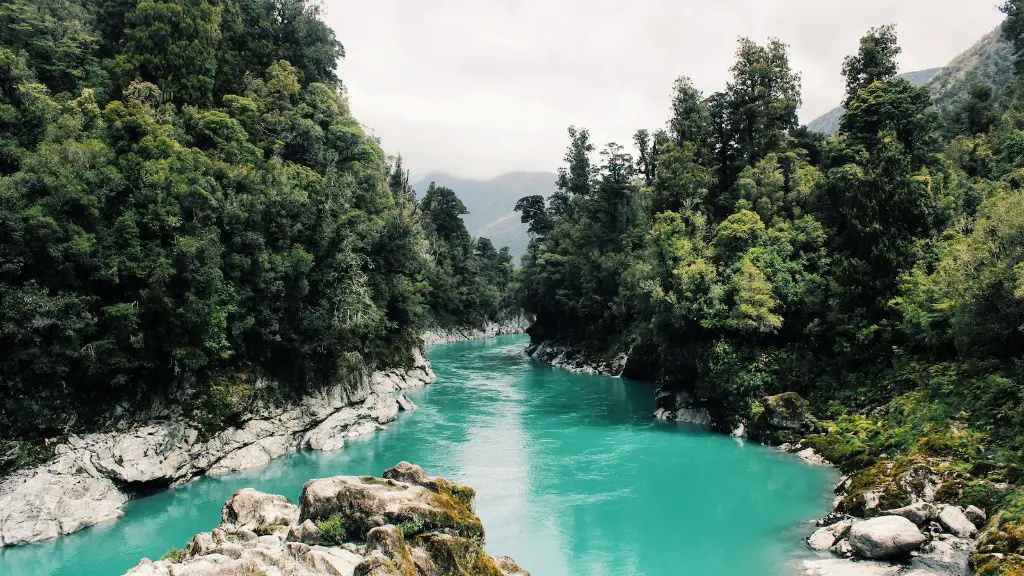Economic change
The Mississippi River is a vital economic lifeline in much of the United States. Without the transport that it provides, the agricultural industry in a significant portion of these states would suffer immensely. Some experts have argued that the consequences of the drying up of the Mississippi River could be catastrophic for the US economy, with a 50% or higher reduction in GDP in the region particularly hit.
The river is essential for the transport of goods, but also for providing hydroelectricity and irrigation for jobs in farming, manufacturing and other industries. In 2019, the US had 45,000 vessels travelling up and down the Mississippi River, carrying 180 million tons of cargo.
The river basin is one of the largest in the world and its tributaries, such as the Missouri and Ohio rivers, provide drinking water, irrigation and recreational fishing to the states of Texas, Louisiana, Arkansas and other states. The Mississippi River Delta is home to some of the most important wildlife on the American continent, and a vital resource for the local economies.
Without the Mississippi, the loss of money resulting from taxes would be significant, not to mention the trillions of dollars of assets in the Mississippi Delta, from agricultural land and equipment, to fishing assets – all of which would be lost.
Environmental consequences
The Missouri-Mississippi river system is the world’s fourth-largest river basin, and it carries much of the silt and sediment which helps build and sustain coastal wetlands. The Mississippi Delta is characterised by a complex network of wetlands, woodlands and marshy habitats, which provide important ecosystems for the many species that depend on it.
The disappearance of the Mississippi would have a major effect on the physical and ecological integrity of this region. Those that rely on the river for potable water, drainage and Other services would suffer the most, while species like Alligators would be exposed to direct sunlight and die out from a lack of food sources.
The changes to wildlife would also be extensive as the disappearance of freshwater fish, shellfish and other aquatic species would cause a dramatic decrease in biodiversity. The disappearance of the river’s sediment load would cause the land to subside, damaging infrastructure, increasing flood risks and potentially failing to protect communities from future hurricanes or other natural disasters.
Social factors
The drying up of the Mississippi would also have major implications for human populations. Without the fish that the river provides, communities dependent on fishing for sustenance and income would suffer without employment prospects or any other resource.
The Delta is an economically deprived region, with an already-high unemployment rate and a lack of economic infrastructure. The drying up of the river would provide further economic hardship and make the region even less desirable, with many people forced to migrate seeking better prospects.
The disappearance of the Mississippi would also create further political pressure within the US government. As a result of the economic losses, the government may be forced to implement various policies to support those affected, in order to prevent civil unrest and maintain national security.
International impacts
The Mississippi River acts as a trade route for many countries, and the disappearance of the river would have a serious impact on international trade. The stoppage of vessel traffic would cause shipments of grain and other commodities to be delayed, leading to price increases and a hit to global supply chains.
The flow of the river also affects ocean circulation, and it could lead to changes in water temperature and salinity levels, with consequences for ocean life. The effects could be felt in distant areas, such as the Arctic.
Moreover, it is not only the areas along and near the Mississippi River that would suffer, but also countries many kilometres away, as the disappearance of the river would cause a drought in the region. This could lead to famines in the countries where it rains due to the lack of grain from the US, a lack of electricity or water in the way of the river, and other effects.
Climate effects
The effects of the drying up of the Mississippi River would be echoed in ocean currents and temperatures, leading to weather changes and an increase in extreme weather events. Not only would these events devastate the area near the river, but they could also reach other parts of the US and cause extensive damage.
Without the Mississippi, the ocean would no longer be able to absorb the heat and CO2 released by the river’s flow, leading to rising global temperatures and sea levels. The resulting sea level rise would have a devastating effect on communities living in the Delta region, with the flooding of coastal areas and the loss of valuable agricultural land.
Moreover, the disruption to the oceanic ecosystem and its food web could have disastrous results, as species native to the Delta would be forced to move or die out due to the changing landscape. This could have an unpredictable knock-on effect on other ecosystems, leading to the extinction of many species in the process.
Agricultural changes
The Mississippi River Basin provides much of the US Midwest and the Delta region with much of its agricultural production, and its loss would create a significant drop in US crop yields. This would affect the economy, as well as the health of the local citizens, since large amounts of food and nutrition sources would no longer flow from the farms of the Missississippi delta.
The Delta is also used for livestock raising, particularly for beef and dairy. The disappearance of the river would pose a major threat for the animal welfare, as the lack of access to water would cause the animals to suffer severely. Similarly, the Delta is the main source of floodwater and irrigation for the southern US states, and the effect of the drying up of the Mississippi River would be catastrophic in terms of water supply.
Changes to water quality
Without the Mississippi, the lack of floodwaters would mean the lack of natural regulation of nutrient levels and the movement of toxins in the water, leading to higher concentrations of contaminants and pollutants in water sources. This could damage the health of local wildlife, as well as affect the agriculture and livelihood of nearby communities.
The Mississippi River produces about 5 million gallons of fresh water per second, and the loss of this quantity of fresh water would cause a decrease in salinity in oceans, affecting global patterns of biodiversity. In short, the drying up of the Mississippi would cause severe and unpredictable environmental consequences.
Civil engineering
The drying up of the Mississippi would have a profound impact on civil engineering projects in the affected region. The river’s flows and the seasonal movements of sediment make project design, hydraulic engineering and construction more complicated, so their absence would have a major effect on current and future projects.
The effects could put in jeopardy deltas, bridges, dams and any other civil engineering works, as well as the planning of future projects. Moreover, the slow but steady erosion of the river banks and valleys caused by the river’s current would be stopped, leading to the disastrous settling of the ground and the endangering of existing properties.
Lifestyle
The local population would be profoundly affected by the disappearance of the Mississippi. Many of the activities people enjoy doing along the river and its tributaries, such as swimming, sailing, exploring and fishing would become impossible.
The local communities, who rely on the recreational activities that the river brings, would suffer a hard hit to their businesses and their way of life. Tourist attractions, such as the casinos of Memphis and New Orleans, would also be directly affected by the drying up of the river, as transportation on the river has been a major part of their success.
The religious and spiritual heritage that exists within the region, with the numerous Indigenous tribes, would also be affected, as the rituals and ceremonies that are traditionally celebrated along the river’s banks would be put in jeopardy.
Closing of river wildlife refuges
The Mississippi River and its tributaries provide habitats for thousands of species of birds, fish and mammals, from shiners and sailfish, to pelicans and herons. These species are protected by the US Fish and Wildlife Service in the numerous national wildlife refuges that have been set up along the river.
The drying up of the Mississippi would put the survival of these refuges, and their resident species, in serious jeopardy. Many species would need to migrate in search of food and habitat and, without the river, the wildlife refuges may not survive.
Depletion of fish stocks
The fish and other aquatic species that are found in the Mississippi and its tributaries, such as the alligator gar, blue catfish, buffalo and suckers, would suffer severely if the river dries up. These species are already threatened by pollution, and the loss of the river would exacerbate the problem, as they would have nowhere to go.
The depletion of their numbers would mean that the species would become further endangered. Also, local fishing businesses would be affected, as the lack of fish in the river would lead to a decrease in income, affecting their livelihood and those of the communities they live in.
Disruption of water transport
The transport of goods on the Mississippi is essential for the economy of the region, and its disappearance would have a major impact on the transportation industry. Many of the cargo ships and barge operators that rely on the river for trade would be forced to close down, leading to job losses and an increased cost of goods.
The increase in fuel costs due to the lack of transport on the Mississippi would also be acutely felt by neighbouring states, as the pipeline of fuel from refineries on the river’s banks would be interrupted. This would cause a much higher cost of energy, leading to an overall economic downturn in the area.
The navigation along the Mississippi is vital in connecting the tributaries that feed into it, such as the Missouri and Ohio rivers. Without the river, these tributaries would be unable to access routes to the Gulf of Mexico, and the cost of transportation would skyrocket.
The river also provides a route for recreational vessels, and their navigability would be threatened if the river dries up. Without the Mississippi, recreational fishing and boating would be severely limited and, without the natural beauty of the river or its tributaries, travelers and inhabitants alike would suffer.



